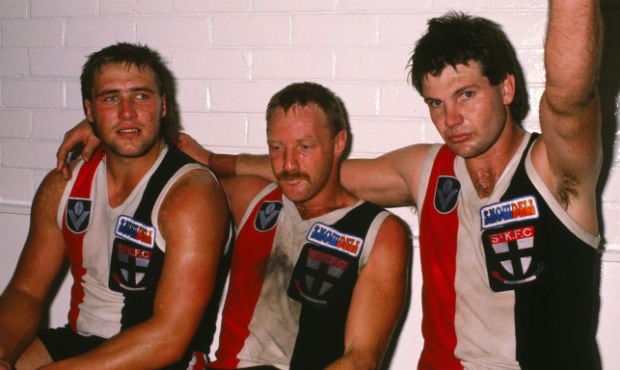THE biggest discussion around a sporting Hall of Fame is the debate around inductees.
How are they rated according to their contemporaries, are they worthy of induction, did they leave a big enough legacy to warrant selection?
But there can be no doubt around the official acknowledgement of Tony Lockett as a legend of Australian football.
The numbers alone do enough to warrant Lockett’s elevation from Hall of Fame member to legend of the game.
For all the dissertation that comes with elite level sport, it is indisputable that whoever scores the most is the best and with 1360 goals to his name, Lockett has kicked more goals than any other man in 118 years of VFL/AFL football.
Russell Holmesby's top 25: Lockett named No.2
But there is more to Lockett’s legacy than simply kicking more goals than anyone else. He was a star, a crowd-drawer, a flawed genius who at his best could only be stopped by a tribunal or his own body.
Lockett’s career panned out in two parts – the temperamental but exciting one-man show at the mostly struggling Saints before becoming Australian football’s most important ambassador and statesman as the sport gained a foothold in Australia’s biggest city.
He performed both roles perfectly but neither sat too comfortably with ‘Plugger’, a shy country boy from Ballarat who detested the focus and would always prefer the company of his greyhounds over a throng of well-wishers.
That reluctance for the limelight only added to the aura around Lockett. Other key forwards who came into football during his time such as Dermott Brereton, Wayne Carey and Jonathan Brown would seem to relish the attention, feed off it and happily walk into a crowded room, puff their chest out and hold court.
Lockett and Gary Ablett sr, another flawed genius, were the boys from the bush who longed for the simple life that was almost unattainable considering their immense talent and presence.
To have Lockett officially dubbed as a legend is so perfectly apt. For St Kilda supporters of the 1980s and early 1990s (and yes, I mean me) he was a legend in every sense, an almost mythical creature who would emerge from the Moorabbin goal square in front of a rapturous crowd not quite sure what drama and heroics they were going to witness that day.
VIDEO: Lockett becomes a St Kilda Legend
St Kilda’s team success for much of Lockett’s career was not the stuff that would generate a big following, but the man himself was more than enough reason for fans to head to Moorabbin where you might see a bag of 10 goals, a report and subsequent suspension or an injury to that 110kg frame that was capable of so much strength, power and speed.
Or you could see all of the above in one afternoon, such was the ever present drama and intrigue around Lockett.
The highs of Lockett’s St Kilda career were plentiful – the 10 goals including the match-winner from the boundary against Carlton and Stephen Silvagni in 1989, the 1987 season where he kicked 100 goals for the first time and became the first and still to this day only full-forward to win the Brownlow medal, or the 1991 campaign where he missed the first third of the year through injury but still won the Coleman medal.
Become a member. Click HERE or call 1300 GO SAINTS.
.jpg)
Lockett with Baldock, 1988
That year in particular encapsulates everything about Lockett that had Saints fans and the wider footy public enthralled.
In what was then known as the Foster’s Cup, Lockett sustained a back injury against West Coast at Waverley Park that looked to be long-term. The red, white and black faithful, a pessimistic lot by nature, had then and there conceded the season was a write-off without their star.
After missing the first six weeks, Lockett returned for the clash with the newly-formed Adelaide Crows at Moorabbin. The Crows had caused a stir in the first few weeks of their existence and were an unknown feared by a xenophobic Victorian football public.
The Saints had shown some promise with a couple of impressive wins and a draw against Collingwood. Robert Harvey, Stewart Loewe and Nathan Burke were coming into their own as footballers and St Kilda was a team on the rise.
The same week Lockett returned from injury, Nicky Winmar also returned from a 10-week suspension. The Moorabbin crowd was abuzz with the prospect of the two stars returning at once and Lockett turned on a 12-goal performance that resulted in a 131-point thrashing of the AFL newbies and the utter humiliation of full-back Danny Hughes who was dragged in the second quarter much to the amusement of a less than sympathetic Animal Enclosure.
After his bag of 12, Lockett followed up with 10 the following week and then another 12 the week after that as he wreaked complete havoc on the competition. He went on to kick 127 goals for the season at a phenomenal average of 7.47 per game.
His season resulted in the Saints’ first finals appearance for 18 years and the club seemed to be on the verge of something big.
Another vintage Lockett performance came in 1994 against the Sydney Swans. After turning Peter Caven’s face concave in the first quarter with an unfortunately placed elbow, Lockett was the villain of the SCG. Some may have gone back into their shell knowing a lengthy suspension was about to begin, not Lockett who booted 11 goals as the Saints came back from a 48-point deficit early in the fourth quarter to secure the most unlikely of wins.
After copping relentless abuse from several prominent elderly Swans supporters stationed behind the goals at the Paddington end all day, Lockett kicked the sealer from the goal square with his 11th major – a low forceful drop punt that could have detached a yapping, greying head clear off its shoulders had the ball not narrowly missed.

Lockett in 1989.
The Saints managed one of football’s greatest comeback victories thanks mainly to Plugger who had the next eight weeks off for his hit on Caven.
At the end of the year Lockett had an offer too good to refuse from the Swans and became the hero of the Sydney supporters he had attempted to decapitate months earlier.
He continued to be a great of the game and St Kilda supporters still admired him from afar.
Even after his career Lockett’s star shone brightly despite finally having the chance to embrace life as a recluse in his property in country NSW.
Rarely seen in public these days, it made nation-wide news when a stray kangaroo that found its way to the main street of Bowral was captured by the tail by Lockett and returned to safe hands.
The image of Tony Lockett bobbing up in the main street of Bowral to pin a kangaroo down only added to the mythology surrounding the man, much like every other bit of theatre that seemed to follow him - the headlock that almost killed Brad Fox, the seemingly annual season-ending injury that at one time resulted in crutches hurled at a young Eddie McGuire, the opponents who feared for their lives and the punch-up with a club official on the stairs outside the Saints disco.
But that was all just a periphery to what he was the best at doing – leading out at a burst of speed and kicking for goal with dead-eye accuracy. There was no one better and there probably never will be anyone better.
The lore of Lockett was clear for all to see years after his retirement at a St Kilda Hall of Fame function in 2010 when he was named a legend of the club.
Panicked club officials paced the room shortly before he was due to be presented as no one was sure if he had made the drive from Bowral. When he finally arrived, his close friend and former teammate Danny Frawley was unable to finish his speech as he was moved to tears.
The spirit of those heady Moorabbin days was in the room that night as fans queued up just to shake hands and get a photo with the man who had not worn red, white and black for 16 years but was still their hero above all who came before and after him. Among the queue were modern-day stars Leigh Montagna and Justin Koschitzke who were so nervous to approach Lockett that they asked long-time trainer Ken Whiffin to introduce them.
Lockett had finished his career in 2002 after a brief comeback to the Swans and is rightfully remembered as a true great of both clubs.
13 years on, there can be no question around the title of Tony Lockett – legend of Australian football.
Luke Holmesby is St Kilda Football Club's Communications Manager.



